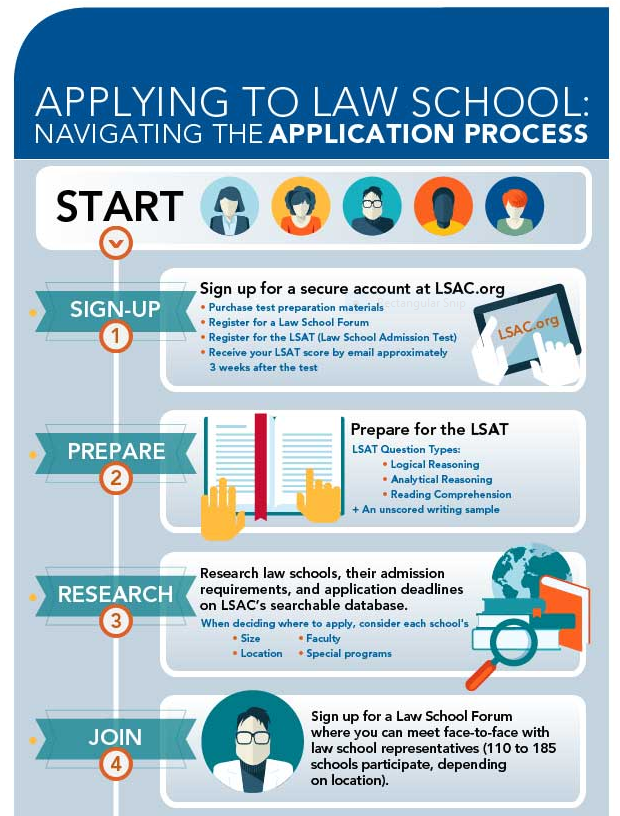Education
Law School Admissions: 5 Secrets to Success
Importance Of Law School Admissions
Law school admissions play a crucial role in shaping the future of aspiring lawyers. The process of gaining admission into a law school is highly competitive and has a significant impact on the opportunities that await individuals in their legal careers. Understanding the competitive nature of law school admissions and the influence it holds over future career prospects is essential for aspiring law students.Competitive Nature Of Law School Admissions
The competition for gaining admission into law schools is intense. With a limited number of spots available, students must demonstrate exceptional academic performance, strong extracurricular activities, and a compelling personal statement to stand out from the crowd. The rigorous selection process demands a high level of dedication and commitment from applicants, making it a challenging and demanding journey.Impact On Future Career Opportunities
The law school admissions process directly impacts an individual’s future career opportunities. Securing admission into a reputable law school can open doors to prestigious internships, clerkships, and job offers from top legal firms. Additionally, the reputation of the law school from which a student graduates can significantly influence their professional network and employment prospects, setting the stage for a successful legal career.
Key Components Of A Law School Application
When applying to law school, there are several key components that admissions committees consider to evaluate an applicant’s potential for success. Understanding the importance of each component and how to present them effectively can significantly impact the outcome of your law school application.Undergraduate Gpa And Academic Transcripts
Your undergraduate GPA and academic transcripts serve as a crucial indicator of your academic performance and ability to handle the rigors of law school. Admissions committees carefully review these records to assess your consistency and dedication to your studies. It’s essential to maintain a strong GPA throughout your undergraduate career and to address any potential weaknesses in your academic record proactively.Lsat Scores
The Law School Admission Test (LSAT) is a standardized exam that plays a pivotal role in the admissions process. Your LSAT scores provide a measure of your critical thinking, analytical reasoning, and logical reasoning skills – all of which are essential for success in law school. It’s crucial to dedicate ample time to prepare for the LSAT and strive for competitive scores that align with the expectations of your target law schools.Letters Of Recommendation
Letters of recommendation offer valuable insights into your character, work ethic, and potential as a law student. Select recommenders who can speak to your academic abilities, personal qualities, and professional experiences. Their endorsements should reinforce your commitment to pursuing a legal education and highlight your unique strengths that would contribute to the law school community.Personal Statement
Your personal statement provides an opportunity to convey your motivations, aspirations, and distinctive qualities to the admissions committee. Craft a compelling narrative that showcases your passion for the law, your relevant experiences, and the impact you hope to make as a future legal professional. Your personal statement should articulate a clear and authentic voice that resonates with the values of your chosen law schools.Strategies For A Successful Law School Application
When it comes to pursuing a successful law school application, strategic planning and preparation are key. Here are some essential strategies to help you stand out and increase your chances of being admitted to your desired law school.Starting Early And Planning Ahead
Begin your law school application process as early as possible to give yourself ample time to craft a compelling application. Consider creating a detailed timeline to keep track of important deadlines, such as LSAT registration dates and application submission deadlines.Seeking Guidance From Pre-law Advisors
Pre-law advisors can offer valuable insights and guidance throughout the application process. They can assist you in selecting the right law schools to apply to, provide feedback on your personal statement, and offer support in navigating the complexities of the application process.Highlighting Unique Experiences And Skills
Emphasize your unique experiences and skills that set you apart from other applicants. Whether it’s volunteer work, internships, or specific skills that demonstrate your potential as a future law student, showcasing these distinctive attributes can make your application memorable to admissions committees.Preparing For The Lsat
Devote significant time to preparing for the LSAT, as it plays a crucial role in the law school admissions process. Utilize study resources, take practice tests, and consider enrolling in a prep course to ensure you are adequately prepared to excel on the exam.
Navigating The Law School Admissions Process
Embarking on the journey of law school admissions can be daunting, but with proper guidance and preparation, navigating the process becomes more manageable. Understanding the requirements, preparing a strong application, and showcasing your unique qualifications are key steps to success in securing admission to law school. If you’re considering applying to law school, you’re likely already aware that the admissions process can be complex and challenging. However, with the right approach and understanding of the process, you can navigate it successfully. In this post, we will discuss the key factors you need to consider when navigating the law school admissions process.Researching Law Schools And Programs
Before you apply to law school, it’s essential to research the different law schools and programs available to you. By doing so, you can determine which law schools are the best fit for your goals, needs, and preferences. You can research law schools and programs by checking their websites, attending law school fairs, and speaking with current law school students.Understanding Application Deadlines And Requirements
It’s also essential to understand the application deadlines and requirements for each law school you’re considering. Each law school has its own set of deadlines and requirements, and failure to adhere to these can result in your application being rejected. You can find the application deadlines and requirements on the law school’s website or by contacting the admissions office directly.Preparing For Interviews
Many law schools require applicants to participate in an interview as part of the admissions process. Therefore, it’s crucial to prepare for these interviews thoroughly. You can prepare for the interview by researching the law school and the program you’re applying to, practicing commonly asked questions, and ensuring that you dress appropriately and professionally. In conclusion, navigating the law school admissions process can be challenging, but with the right approach, it can be manageable. Researching law schools and programs, understanding application deadlines and requirements, and preparing for interviews are all critical factors to consider when applying to law school. By following these tips, you can increase your chances of being accepted into the law school of your choice.Challenges Faced By Law School Applicants
Getting into law school is a challenging process, and many applicants struggle to overcome the obstacles that stand in their way. While every applicant’s journey is unique, there are a few common challenges that many law school applicants face. In this article, we’ll explore some of the most significant challenges and provide tips for how to overcome them.Balancing Academic Workload With Application Preparation
One of the biggest challenges that law school applicants face is balancing their academic workload with the demands of the application process. While maintaining a strong GPA is crucial for admission to law school, applicants must also dedicate time and energy to preparing their applications. This includes studying for the LSAT, writing personal statements, and gathering letters of recommendation. To balance these demands, it’s essential to create a schedule and stick to it. Set aside specific times each week to work on your application materials, and treat this time as seriously as you would a class or study session. It may also be helpful to seek out resources on campus, such as academic advisors or writing centers, to help you manage your time effectively.Dealing With Rejections And Waitlists
Another significant challenge that law school applicants face is dealing with rejections and waitlists. While it’s essential to have confidence in your abilities, it’s also important to be realistic about your chances of admission. Even the most qualified applicants may not be accepted to their top-choice schools. If you receive a rejection or a spot on the waitlist, don’t give up hope. Take time to reflect on your application and consider ways to improve it for the next admissions cycle. This may include retaking the LSAT, gaining more work experience, or seeking out additional letters of recommendation. It’s also important to have a backup plan in case you are not accepted to any law schools, such as pursuing a master’s degree or gaining work experience in a related field. While the law school admissions process can be challenging, it’s important to remember that it’s not insurmountable. By creating a schedule, seeking out resources on campus, and being realistic about your chances of admission, you can overcome the obstacles that stand in your way and achieve your goal of becoming a law student.